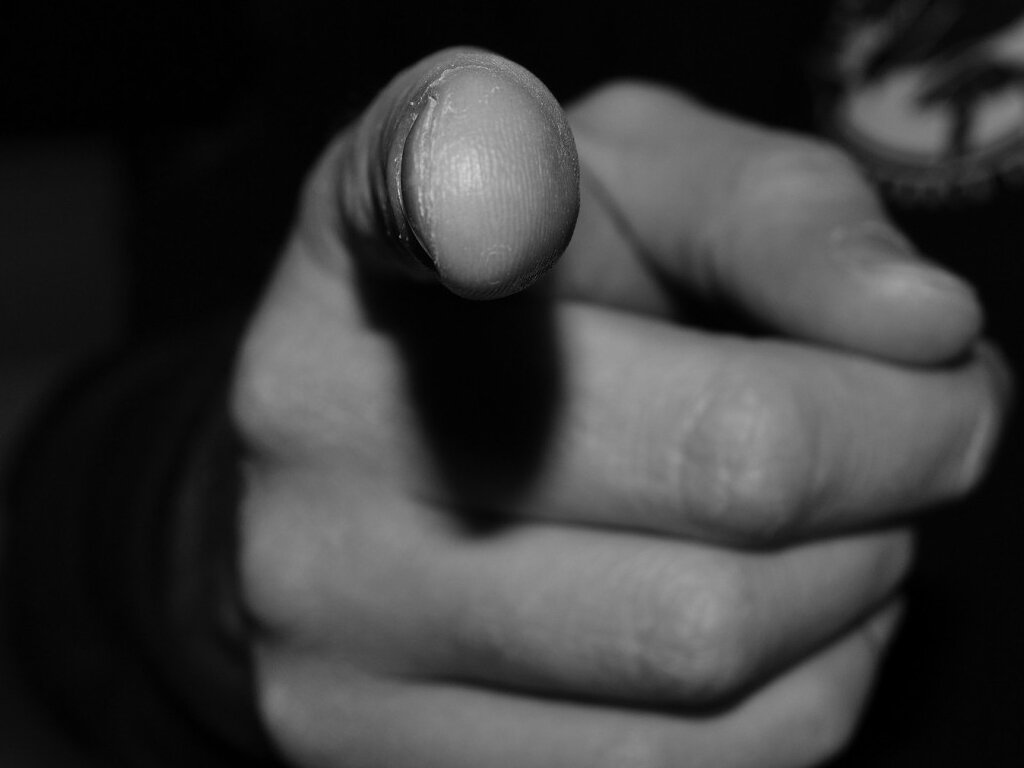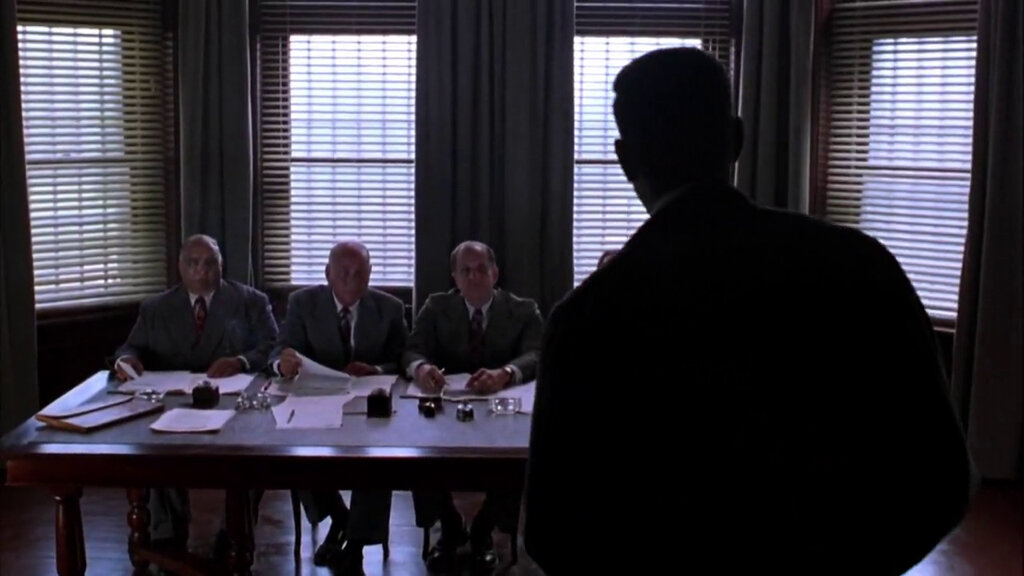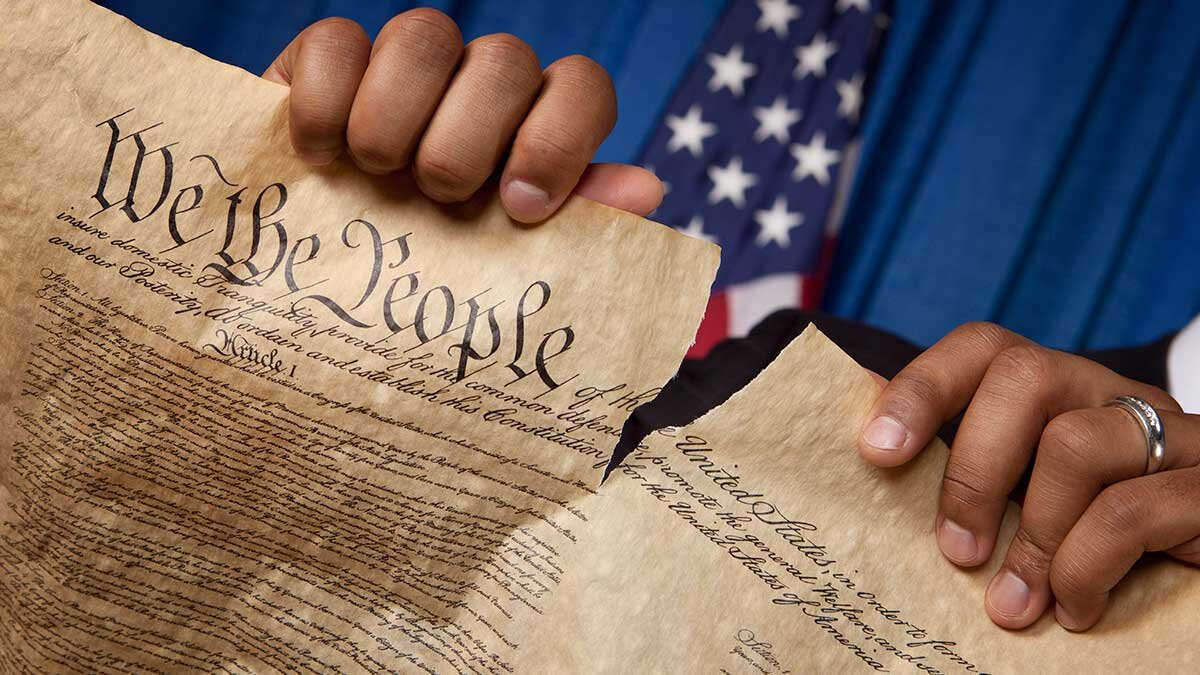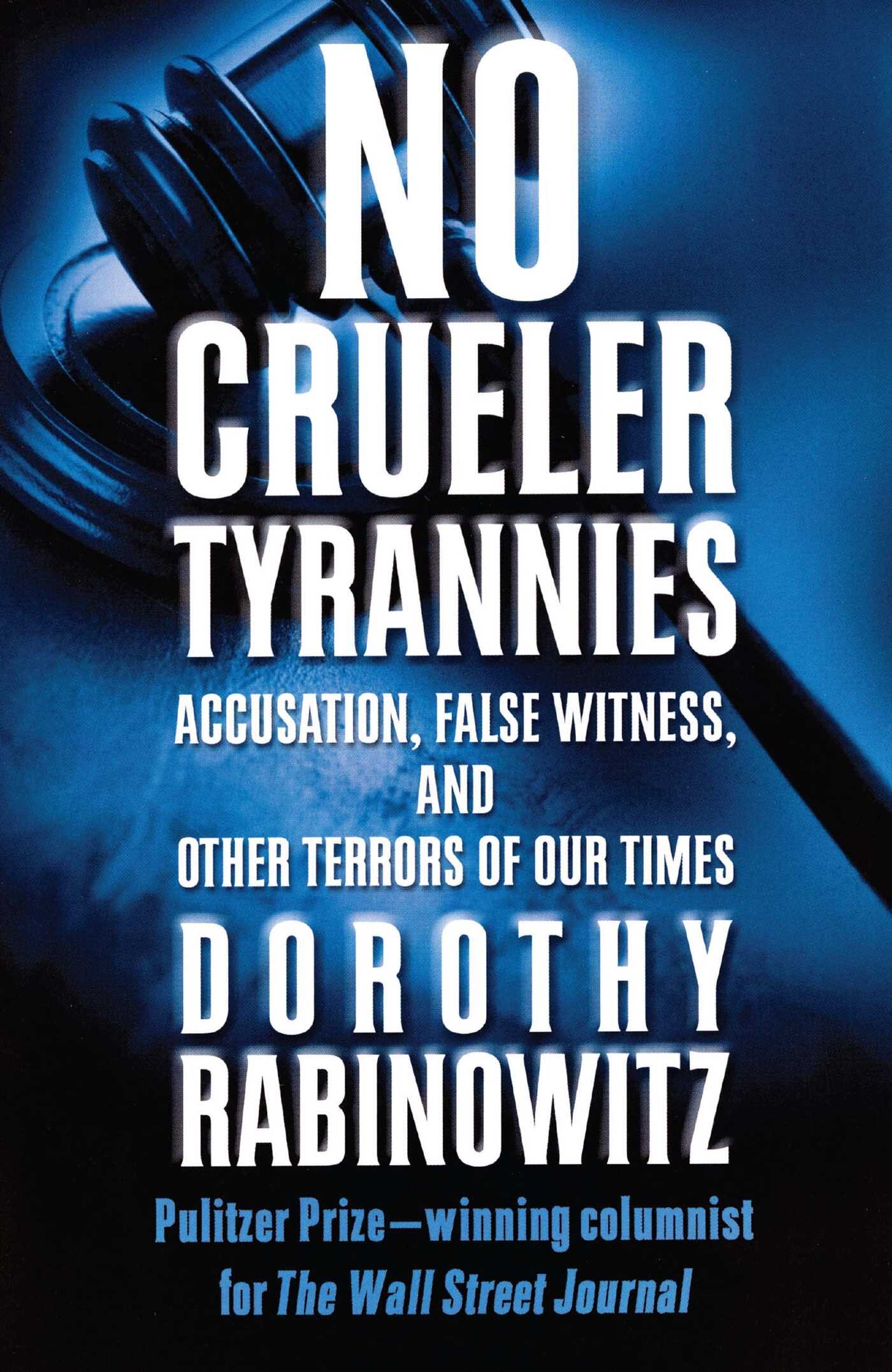Plea Deals or a Life Sentence in the Live Free or Die State
 New Hampshire Judge Arthur Brennan sentenced this falsely accused Catholic priest to more than 30 times the plea deal he would have taken had he in fact been guilty.In January, 2016, I wrote a post for These Stone Walls entitled, “American Crime Story: The People vs O.J. Simpson.” You can go read it if you want some deeper background, but to make a long story shorter, O.J. Simpson’s trial and mine were parallel dramas back in 1994.O.J.’s trial extended a full year beyond mine and presented what Los Angeles County District Attorney Gil Garcetti described as “a mountain of evidence” against O.J. Simpson charged with the murders of Nicole Brown and Ronald Goldman. After eleven full days of jury deliberation, Simpson was acquitted.
New Hampshire Judge Arthur Brennan sentenced this falsely accused Catholic priest to more than 30 times the plea deal he would have taken had he in fact been guilty.In January, 2016, I wrote a post for These Stone Walls entitled, “American Crime Story: The People vs O.J. Simpson.” You can go read it if you want some deeper background, but to make a long story shorter, O.J. Simpson’s trial and mine were parallel dramas back in 1994.O.J.’s trial extended a full year beyond mine and presented what Los Angeles County District Attorney Gil Garcetti described as “a mountain of evidence” against O.J. Simpson charged with the murders of Nicole Brown and Ronald Goldman. After eleven full days of jury deliberation, Simpson was acquitted. In contrast, my trial lasted one week and presented no evidence at all. It did not help that my bishop, and diocese, already deep into the settlement process, published a pre-trial press release that declared me guilty before I even set foot in any court. There was little left for a jury to do. I was convicted of all charges on September 23, 1994, after a jury deliberated for all of ninety minutes in a case brought twelve years after the fictitious crimes supposedly took place.But what most TSW readers found surprising about parallels between these two trials was something that happened much later. Three years after the O.J. Simpson trial concluded, his chief prosecutor, former L.A. Assistant District Attorney Marcia Clark, tried to come to my defense. In late 1998, Ms. Clark wanted to profile my trial for an investigative report on wrongful convictions sponsored by FOX News. The production company, Mark Phillips Films & Television, wanted to interview me on camera at the New Hampshire State Prison.The interviews were to culminate in a polygraph examination administered by a polygraph expert on national television. Having taken and conclusively passed two polygraph tests before my trial, I agreed to the proposal without hesitation. In 1998 Fox News proceeded to seek the necessary permissions for the interviews to take place. I requested that my accuser at trial also be asked to submit to the polygraph, but neither he nor his contingency lawyer would respond.In the end, prison officials refused to allow these interviews. An attempt by FOX News to seek intervention from higher up the political ladder met with this reply from then Governor (now U.S. Senator D-NH) Jeanne Shaheen:
In contrast, my trial lasted one week and presented no evidence at all. It did not help that my bishop, and diocese, already deep into the settlement process, published a pre-trial press release that declared me guilty before I even set foot in any court. There was little left for a jury to do. I was convicted of all charges on September 23, 1994, after a jury deliberated for all of ninety minutes in a case brought twelve years after the fictitious crimes supposedly took place.But what most TSW readers found surprising about parallels between these two trials was something that happened much later. Three years after the O.J. Simpson trial concluded, his chief prosecutor, former L.A. Assistant District Attorney Marcia Clark, tried to come to my defense. In late 1998, Ms. Clark wanted to profile my trial for an investigative report on wrongful convictions sponsored by FOX News. The production company, Mark Phillips Films & Television, wanted to interview me on camera at the New Hampshire State Prison.The interviews were to culminate in a polygraph examination administered by a polygraph expert on national television. Having taken and conclusively passed two polygraph tests before my trial, I agreed to the proposal without hesitation. In 1998 Fox News proceeded to seek the necessary permissions for the interviews to take place. I requested that my accuser at trial also be asked to submit to the polygraph, but neither he nor his contingency lawyer would respond.In the end, prison officials refused to allow these interviews. An attempt by FOX News to seek intervention from higher up the political ladder met with this reply from then Governor (now U.S. Senator D-NH) Jeanne Shaheen:
“I understand your company’s interest in an on-camera interview with Gordon MacRae, an inmate in the New Hampshire State Prison, but I will not interfere with the decision not to allow media access to Mr. MacRae.”
That was 1998. So why is this all coming up again now? Several years after his acquittal in the murder case, O.J. Simpson was charged and convicted in an unrelated case of armed robbery. After serving a prison sentence, O.J. was quietly granted parole in September 2017, and is now free.But our stories seem destined to remain parallel dramas. On the same day that O.J. was paroled from prison, I had to do something that most readers of These Stone Walls will find to be perplexing, and maybe even appalling. It’s a complex matter that requires explanation before it will make any sense at all. I received notice from the New Hampshire Parole Board that I was scheduled for a parole hearing on September 21, 2017 - twenty-three years into my imprisonment - and I refused it.THE EXTORTION OF PLEA DEAL JUSTICE Here is what happened and why: As most readers know from our “ABOUT” page, I was sent to prison on September 23, 1994, after a trial with no evidence at all beyond the testimony of one man, Thomas Grover, with a long criminal record. Both his criminal record and the fact that he stood to gain $200,000 in settlement from the Diocese of Manchester were kept from the jury by Judge Arthur Brennan.Having no evidence to review beyond the accusations themselves, the jury arrived at its verdict in ninety minutes after Judge Brennan instructed them that state law (NH RSA 632-A:6) requires no evidence or corroboration for a conviction in a case of rape or sexual abuse. The accusation is evidence enough to convict in a case that rests entirely on credibility. He also instructed the jury to “disregard inconsistencies in Mr. Grover’s testimony.” As Dorothy Rabinowitz later wrote in The Wall Street Journal, “they had much to disregard.”It was also kept from the jury that on three occasions - twice before my trial and once during trial just after Grover’s testimony - I was presented with plea bargain offers by the two prosecutors in the case. Right up to the moment the jury began deliberation, I could have stopped the trial and entered a plea of guilty in exchange for one year in prison. A good deal if I were guilty, but if innocent, not so much.I refused these plea bargain offers three times in succession. Each time it felt as though the weight of false witness was crushing me. In ‘The Trials of Father MacRae,” Dorothy Rabinowitz laid out pointedly the nature of this case and the perversion of justice I would have been admitting to had I accepted the plea bargain offers.Thomas Grover testified that he came to me five times for counseling for his drug addiction in the months preceding his 16th birthday in 1983. He described being verbally assaulted, made to cry, and then forcibly raped in my highly visible rectory office during each of these sessions. He testified that each week he “repressed” the memory of these vicious assaults so that he returned from week to week not remembering that he was raped the week before.Grover spoke vaguely of having out-of-body experiences that suppressed his memory of the assaults. Ryan MacDonald covered the scene of these fictitious crimes with photos in an article that had most readers shaking their heads in disbelief entitled, “Justice and a Priest’s Right of Defense in the Diocese of Manchester.”Most Americans simply do not understand the injustice of this aspect of American justice. Over 90 percent of criminal cases end with plea bargains instead of trials. A guilty defendant would leap upon a plea deal like the ones presented to me, but an innocent defendant falsely accused of rape or sexual abuse just cannot fathom standing before a judge and saying that word - “guilty” - even if just one year later it will let him off the hook entirely.Most people just don’t get it that plea bargains can result in the truly guilty spending far less time in prison than the truly innocent for the same charge.WHY I HAD TO REFUSE PAROLE
Here is what happened and why: As most readers know from our “ABOUT” page, I was sent to prison on September 23, 1994, after a trial with no evidence at all beyond the testimony of one man, Thomas Grover, with a long criminal record. Both his criminal record and the fact that he stood to gain $200,000 in settlement from the Diocese of Manchester were kept from the jury by Judge Arthur Brennan.Having no evidence to review beyond the accusations themselves, the jury arrived at its verdict in ninety minutes after Judge Brennan instructed them that state law (NH RSA 632-A:6) requires no evidence or corroboration for a conviction in a case of rape or sexual abuse. The accusation is evidence enough to convict in a case that rests entirely on credibility. He also instructed the jury to “disregard inconsistencies in Mr. Grover’s testimony.” As Dorothy Rabinowitz later wrote in The Wall Street Journal, “they had much to disregard.”It was also kept from the jury that on three occasions - twice before my trial and once during trial just after Grover’s testimony - I was presented with plea bargain offers by the two prosecutors in the case. Right up to the moment the jury began deliberation, I could have stopped the trial and entered a plea of guilty in exchange for one year in prison. A good deal if I were guilty, but if innocent, not so much.I refused these plea bargain offers three times in succession. Each time it felt as though the weight of false witness was crushing me. In ‘The Trials of Father MacRae,” Dorothy Rabinowitz laid out pointedly the nature of this case and the perversion of justice I would have been admitting to had I accepted the plea bargain offers.Thomas Grover testified that he came to me five times for counseling for his drug addiction in the months preceding his 16th birthday in 1983. He described being verbally assaulted, made to cry, and then forcibly raped in my highly visible rectory office during each of these sessions. He testified that each week he “repressed” the memory of these vicious assaults so that he returned from week to week not remembering that he was raped the week before.Grover spoke vaguely of having out-of-body experiences that suppressed his memory of the assaults. Ryan MacDonald covered the scene of these fictitious crimes with photos in an article that had most readers shaking their heads in disbelief entitled, “Justice and a Priest’s Right of Defense in the Diocese of Manchester.”Most Americans simply do not understand the injustice of this aspect of American justice. Over 90 percent of criminal cases end with plea bargains instead of trials. A guilty defendant would leap upon a plea deal like the ones presented to me, but an innocent defendant falsely accused of rape or sexual abuse just cannot fathom standing before a judge and saying that word - “guilty” - even if just one year later it will let him off the hook entirely.Most people just don’t get it that plea bargains can result in the truly guilty spending far less time in prison than the truly innocent for the same charge.WHY I HAD TO REFUSE PAROLE Faced with these deals then, as now, the image that kept playing in my mind was that of Violet Amirault of Massachusetts. She and her adult son and daughter were the now notorious defendants in the infamous Fells Acres Day Care case. In what was later exposed as a classic Massachusetts witch hunt by Dorothy Rabinowitz and The Wall Street Journal, Violet, Gerald, and Cheryl Amirault were tried and convicted in a media-fueled early 1980s climate of hysteria over child sexual abuse.This case was at the core of Dorothy Rabinowitz’s courageous, compelling, but truly haunting book, No Crueler Tyrannies: Accusation, False Witness, and Other Terrors of Our Time. I will never be able to forget that one shattering news footage scene of the elderly Violet Amirault, distraught and overcome as she was led to prison in chains. When asked by a reporter if the charges were true she sobbed loudly, “I NEVER did this’ I NEVER did this’ I NEVER, NEVER, NEVER did this!”I believed her. I believe that every thinking, feeling, rational human being in Massachusetts who witnessed that scene believed her. Violet died of cancer in prison, eaten away from the inside because the Salem Witch Trials had found their ugly way back into a New England court of law. In response to the growing public realization that the Amirault trials were a travesty, politician-prosecutors like Martha Coakley and Scott Harshbarger doubled down on their efforts to silence the Amiraults and keep them in prison.I thought of Violet Amirault and that scene - in fact, I thought of little else - when I refused the one-year plea deal during trial in 1994. I thought of her again 23 years later when I refused a parole hearing that required an inference that I did what I never, never, never did.The parole hearing offered to me was meaningless, and simple math will explain why. After reprimanding me for refusing plea bargains and insisting upon a trial in 1994, Superior Court Judge Arthur Brennan imposed the maximum possible sentence and declared he would have imposed more if the law permitted it. He ridiculed the one priest who spoke out, stating his informed belief that the charges were false. “He tried to deceive this court,” Judge Brennan said.Then the judge imposed one prison term of three-and-one-half to seven years to be followed by four prison terms of seven-and-one-half to fifteen years, all to be served consecutively. This was an aggregate total of 33 ½ to 67 years in prison.This means that every seven-and-one-half years I am invited to appear before the New Hampshire Parole Board and present an inference that I am guilty, that I am remorseful, and that I will, when the time comes, enroll myself in a prison-based sexual offender program which requires an open admission of guilt and the cessation of any effort to challenge a conviction or sentence. I could have done this 23 years ago when it would have had me released after just one year. But I am not guilty, and I cannot do this. Not now! Not ever!As for the prison sex offender treatment requirement, I would not even be eligible for it until two years before the end of my last aggregate sentence in the year 2032. I would be 79 years of age recalling and addressing the lurid details of offenses claimed to have happened when I was 29, but in reality never happened at all. Does any of this make any sense to anyone?In November 2017, Thomas Grover, the sole accuser at my 1994 trial, will be 50 years old. This man and three of his brothers who also accused me and obtained settlements were victims of nothing more than their own greed. They perpetrated the crime of fraud and the sin of false witness from behind the shield of a Catholic sex abuse moral panic.PROSECUTORIAL JUDGES
Faced with these deals then, as now, the image that kept playing in my mind was that of Violet Amirault of Massachusetts. She and her adult son and daughter were the now notorious defendants in the infamous Fells Acres Day Care case. In what was later exposed as a classic Massachusetts witch hunt by Dorothy Rabinowitz and The Wall Street Journal, Violet, Gerald, and Cheryl Amirault were tried and convicted in a media-fueled early 1980s climate of hysteria over child sexual abuse.This case was at the core of Dorothy Rabinowitz’s courageous, compelling, but truly haunting book, No Crueler Tyrannies: Accusation, False Witness, and Other Terrors of Our Time. I will never be able to forget that one shattering news footage scene of the elderly Violet Amirault, distraught and overcome as she was led to prison in chains. When asked by a reporter if the charges were true she sobbed loudly, “I NEVER did this’ I NEVER did this’ I NEVER, NEVER, NEVER did this!”I believed her. I believe that every thinking, feeling, rational human being in Massachusetts who witnessed that scene believed her. Violet died of cancer in prison, eaten away from the inside because the Salem Witch Trials had found their ugly way back into a New England court of law. In response to the growing public realization that the Amirault trials were a travesty, politician-prosecutors like Martha Coakley and Scott Harshbarger doubled down on their efforts to silence the Amiraults and keep them in prison.I thought of Violet Amirault and that scene - in fact, I thought of little else - when I refused the one-year plea deal during trial in 1994. I thought of her again 23 years later when I refused a parole hearing that required an inference that I did what I never, never, never did.The parole hearing offered to me was meaningless, and simple math will explain why. After reprimanding me for refusing plea bargains and insisting upon a trial in 1994, Superior Court Judge Arthur Brennan imposed the maximum possible sentence and declared he would have imposed more if the law permitted it. He ridiculed the one priest who spoke out, stating his informed belief that the charges were false. “He tried to deceive this court,” Judge Brennan said.Then the judge imposed one prison term of three-and-one-half to seven years to be followed by four prison terms of seven-and-one-half to fifteen years, all to be served consecutively. This was an aggregate total of 33 ½ to 67 years in prison.This means that every seven-and-one-half years I am invited to appear before the New Hampshire Parole Board and present an inference that I am guilty, that I am remorseful, and that I will, when the time comes, enroll myself in a prison-based sexual offender program which requires an open admission of guilt and the cessation of any effort to challenge a conviction or sentence. I could have done this 23 years ago when it would have had me released after just one year. But I am not guilty, and I cannot do this. Not now! Not ever!As for the prison sex offender treatment requirement, I would not even be eligible for it until two years before the end of my last aggregate sentence in the year 2032. I would be 79 years of age recalling and addressing the lurid details of offenses claimed to have happened when I was 29, but in reality never happened at all. Does any of this make any sense to anyone?In November 2017, Thomas Grover, the sole accuser at my 1994 trial, will be 50 years old. This man and three of his brothers who also accused me and obtained settlements were victims of nothing more than their own greed. They perpetrated the crime of fraud and the sin of false witness from behind the shield of a Catholic sex abuse moral panic.PROSECUTORIAL JUDGES What Judge Arthur Brennan and prosecutors did to me, however, is what advocates for a more sane and just criminal justice system call a “trial penalty.” To entice the guilty into lenient plea deals that bolster conviction records, the justice system threatens astronomical sentences if a defendant balks at the deal.Judges have some discretion, however, for defendants with no prior felony record. Judges can impose harsh sentences concurrently instead of consecutively. Judge Brennan had that option, but ignored it. Had he opted for a concurrent sentence, I would have left prison without having to admit guilt after fifteen years. If his sentence stands, I will be 108 years old upon completion at a cost to the taxpayers of New Hampshire in excess of $2.4 million.The entire justice system has grown oblivious to the fact that innocent defendants do exist and often cannot fathom accepting a plea bargain. The guilty readily can, but many prosecutors and judges never even consider that there is such a thing as an innocent defendant falsely accused.In 2015, The Wall Street Journal published an op-ed column by Lucian E. Dervan entitled, “The Injustice of the Plea Bargain System” (Dec 4, 2015). The author wrote, “It is common for sentences after trial to be far more severe than those offered to induce guilty pleas.” The author called this the “trial penalty,” a grave injustice when inflicted on innocent defendants.In the WSJ “Letters to the Editor” column (Dec 16, 2015), the op-ed drew some sharp criticism from prosecutors and judges Spenser Lawton, Jr. of Savannah, Georgia identified himself as a “retired career prosecutor.” His published letter defended the practice and effectiveness of plea bargains:
What Judge Arthur Brennan and prosecutors did to me, however, is what advocates for a more sane and just criminal justice system call a “trial penalty.” To entice the guilty into lenient plea deals that bolster conviction records, the justice system threatens astronomical sentences if a defendant balks at the deal.Judges have some discretion, however, for defendants with no prior felony record. Judges can impose harsh sentences concurrently instead of consecutively. Judge Brennan had that option, but ignored it. Had he opted for a concurrent sentence, I would have left prison without having to admit guilt after fifteen years. If his sentence stands, I will be 108 years old upon completion at a cost to the taxpayers of New Hampshire in excess of $2.4 million.The entire justice system has grown oblivious to the fact that innocent defendants do exist and often cannot fathom accepting a plea bargain. The guilty readily can, but many prosecutors and judges never even consider that there is such a thing as an innocent defendant falsely accused.In 2015, The Wall Street Journal published an op-ed column by Lucian E. Dervan entitled, “The Injustice of the Plea Bargain System” (Dec 4, 2015). The author wrote, “It is common for sentences after trial to be far more severe than those offered to induce guilty pleas.” The author called this the “trial penalty,” a grave injustice when inflicted on innocent defendants.In the WSJ “Letters to the Editor” column (Dec 16, 2015), the op-ed drew some sharp criticism from prosecutors and judges Spenser Lawton, Jr. of Savannah, Georgia identified himself as a “retired career prosecutor.” His published letter defended the practice and effectiveness of plea bargains:
“The whole idea is that the sentence on a plea deal will be less severe than the one risked at trial. That’s called an incentive without which the option would be meaningless. What Mr. Dervan calls the ‘trial penalty’ might better be called the ‘plea benefit’.”
It is distressing that this former prosecutor’s defense of the plea bargain system seems to reveal no awareness that a defendant might actually be innocent. However, the far more disturbing rebuttal was this one from Larry Stirling of San Diego, a retired California Superior Court judge:
“The high conviction rate via plea bargaining results from the fact that the offer is a good deal for the defendants or they wouldn’t take them. They might be criminals, but they aren’t all dumb.”
This former judge evidences a cynical denial that a defendant standing before his court might be innocent. Instead of facing a prosecutor and a judge, defendants before Judge Larry Stirling seem to have been facing two prosecutors.Former prosecutors are far too highly represented among the ranks of criminal court judges. In fact, a judicial nominee in New Hampshire was denied confirmation two years ago for the stated reason that he once served as a public defender. The judge who denied my last appeal while refusing any hearing on evidence or testimony was a career federal prosecutor.With all due respect to Judge Larry Stirling, I am not a criminal and I am certainly not ‘dumb.” But the plea bargain presented to me 23 years ago was not a good deal at all. There was just one problem with it, and I owe a debt to the memory of Mrs. Violet Amirault, a martyr for truth, who voiced it for me:
“I NEVER did this! I NEVER did this! I NEVER, NEVER, NEVER did this!”
Editor’s Note: Arm yourself with the whole truth of this story with these posts by Ryan A. MacDonald:
